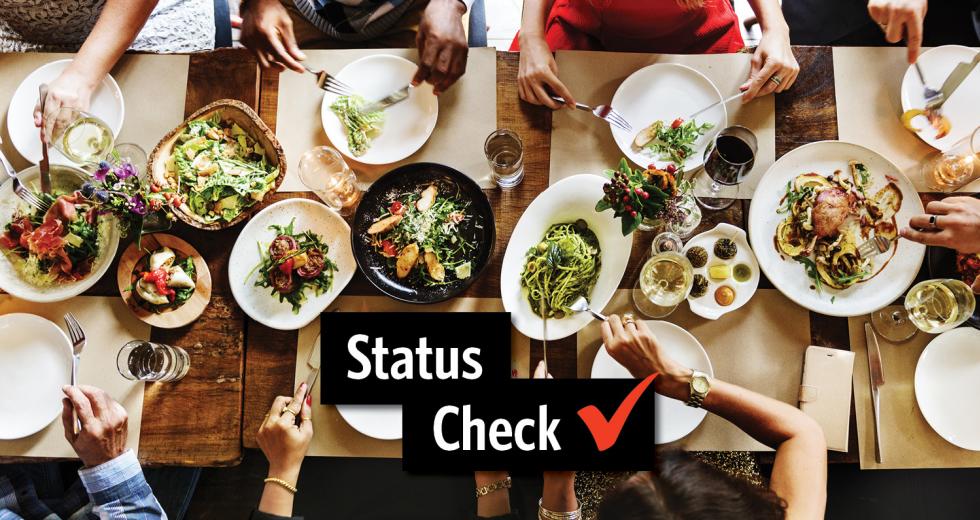Prior to 2019, the California Retail Food Code had strict limits on which facilities could store, package and serve food at the retail level. These restrictions were put in place for health and sanitation purposes. Private homes weren’t on the list of acceptable “food facilities,” so it was illegal for home cooks to sell anything other than low-risk foods (jams, breads, pies, etc.) that don’t need to be refrigerated, per the California Homemade Food Act.
Last year, the California Legislature passed AB 626, an amendment to the California Retail Food Code. This allowed “microenterprise home kitchen operations” to be legitimate food facilities where cooks can sell perishable foods. Under the new legislation, home cooks are allowed to make 60 meals a week and make no more than $50,000 in food sales a year. Food must be prepared, cooked and served on the same day, and home cooks need training and certification.
But under this state law a county’s board of supervisors must vote to opt-in to offer the permits. Only Riverside County has opted in so far, according to several news outlets. Other counties, such as Yolo County, are holding off. Without opting in, Yolo County officials say any active enterprise home kitchens selling perishable foods are breaking the law by operating without a permit. (AB 377 is a follow-up bill meant to smooth out the implementation process for those counties that opt-in.)
Akshay Prabhu founded Foodnome, which was Comstock’s June’s Startup of the Month. Foodnome works like Uber for home kitchens, using an app to connect registered cooks with hungry patrons. Prabhu is a supporter of AB 626. He’s had a passion for food since he was a boy, but his dream of starting a food business kept bumping up against Yolo County’s Environmental Health division. In 2018, health officials shut down an early iteration of Prabhu’s crowdfunded dinner parties in Davis.
April Meneghetti, director of Environmental Health for Yolo County, says Prabhu started the business back up at some point. The county, which opposed AB 626, issued Prabhu an informal warning May 7 and a formal cease and desist May 23. “Per AB 626, internet food service intermediaries (such as Foondome) must be registered with the California Department of Public Health … however, per CDPH, Foodnome has not done this as of last week,” Meneghetti said in an email to Comstock’s on June 12.
After Riverside County opted into the legislation by approving an ordinance for home-based cooks May 7, Prabhu filed the necessary documents and received approval from CDPH on June 24. Home cooks in the Foodnome network are now operating in Riverside County. In Yolo and Sacramento counties, he says, Foodnome cooks had been hosting “private dinner parties,” which he claims are not under county jurisdiction. As of July, he put those parties on hold.
Legally, there’s a lot of uncertainty in the difference between a private dinner party and a restaurant. Christina Oatfield, a Bay Area-based attorney with expertise in food safety laws, says these laws generally apply to food production for public consumption. If you invite friends over, that’s not a public event, so food safety laws don’t apply, she says.
“Some of these underground restaurants and supper clubs fall into that gray area,” Oatfield says. “That’s when you’re inviting not just personal friends, but friends of friends, and advertising on the internet.”
If anyone from the public can receive an invitation, show up and eat, then the health department has an argument that the event should abide by all food safety requirements, she says. But just because someone pays money doesn’t automatically make the operation illegal.
“In a gray area, if there’s money changing hands, to the court or health inspectors, it may make it look like a transaction that should be regulated,” Oatfield says. “But that’s not the ultimate deciding factor.”
Food safety issues are the key reason health officials aren’t getting on board with AB 626. According to Erin DiCaprio, a food virologist in the UC Davis Department of Food Science and Technology, these issues aren’t unwarranted. The California Retail Food Code is based off of the U.S. Food and Drug Administration’s Food Code — which is not a law, but more like guidelines — that gives explicit requirements for restaurants when it comes to infrastructure and sanitation. The fact that home kitchens are constructed without these standards poses a potential food safety risk, DiCaprio says.
“If somebody has a bathroom in the vicinity where food preparation is happening, that increases the risk of cross-contamination,” says DiCaprio, who sides with environmental health departments in opposition to AB 626.
Two other major concerns are the lack of regular inspections and the health risks from cooked food left out in a dangerous temperature range. Meneghetti says AB 377, the follow-up bill, still falls short of addressing some key concerns: inspections being limited to once a year (Meneghetti recommends at least two), no requirement for handwashing supplies and operations being exempt from Yolo County’s food safety placarding program, to name a few.
As advocates continue to push for counties to opt-in, Prabhu points to community support, focusing on collecting signatures for petitions and using Riverside as a case study.
“We’re building our community in Riverside to show a positive example of the benefits of home restaurants and undeniable proof that it is the way of the future,” says Prabhu, adding that the county has permitted three home kitchens and more coming as of July 25.
The home cooks in Riverside are selling out meals, he says, allowing them to earn an income and bringing the neighbors together. He believes the results will show reluctant officials in other counties that this movement is a pressing issue for the community.
“The same thing happened when food trucks were legalized,” he says. “The county wants to paint this narrative that we’re going to get people sick, but we’re just trying to change the food system. All we want is for the county to support us.”
Recommended For You

Startup of the Month: Foodnome
Home cooking loves company
For Akshay Prabhu, nothing ties a meal together like community. His Davis-based startup, Foodnome, reflects that philosophy, turning regular homes into restaurants the way Uber turned regular cars into taxis.



